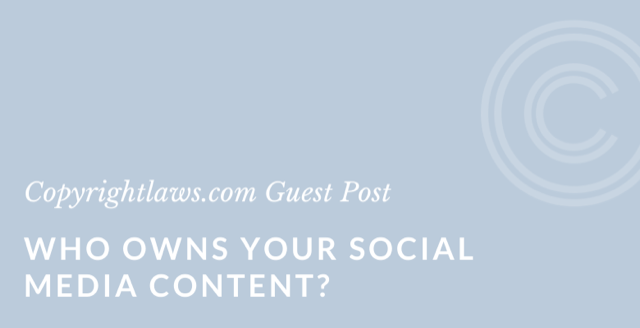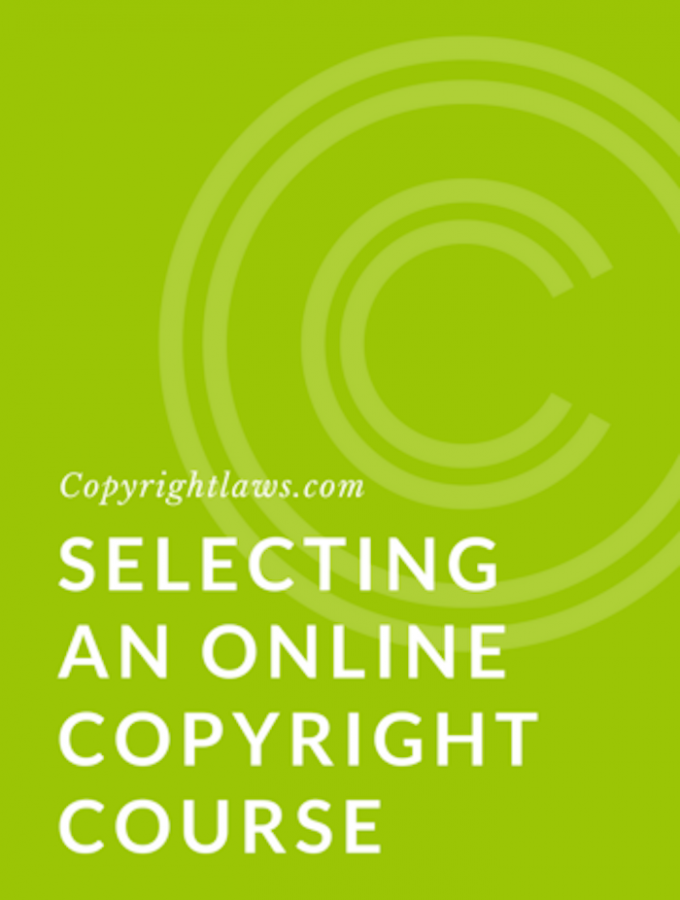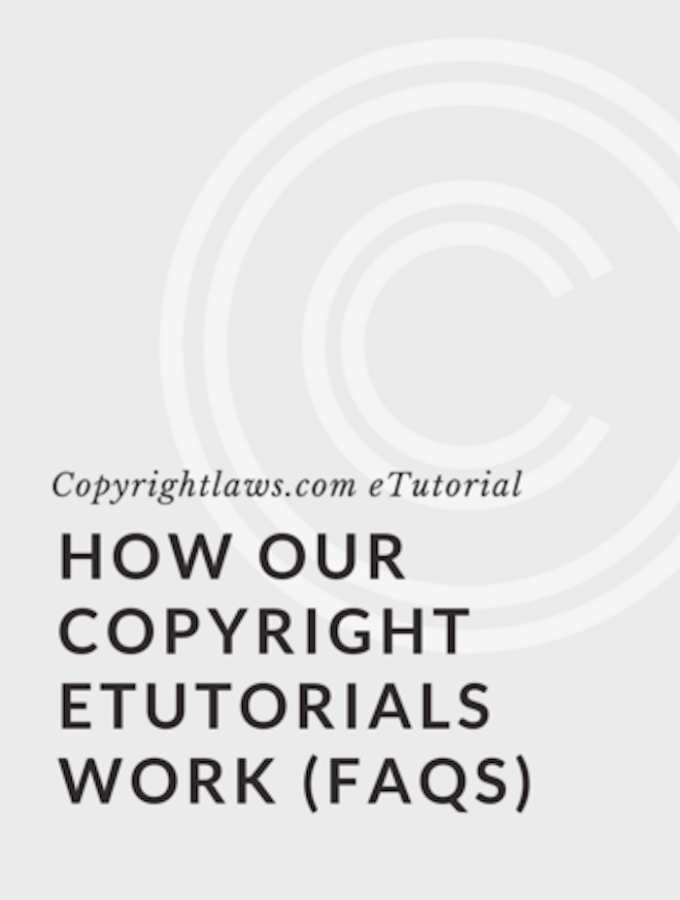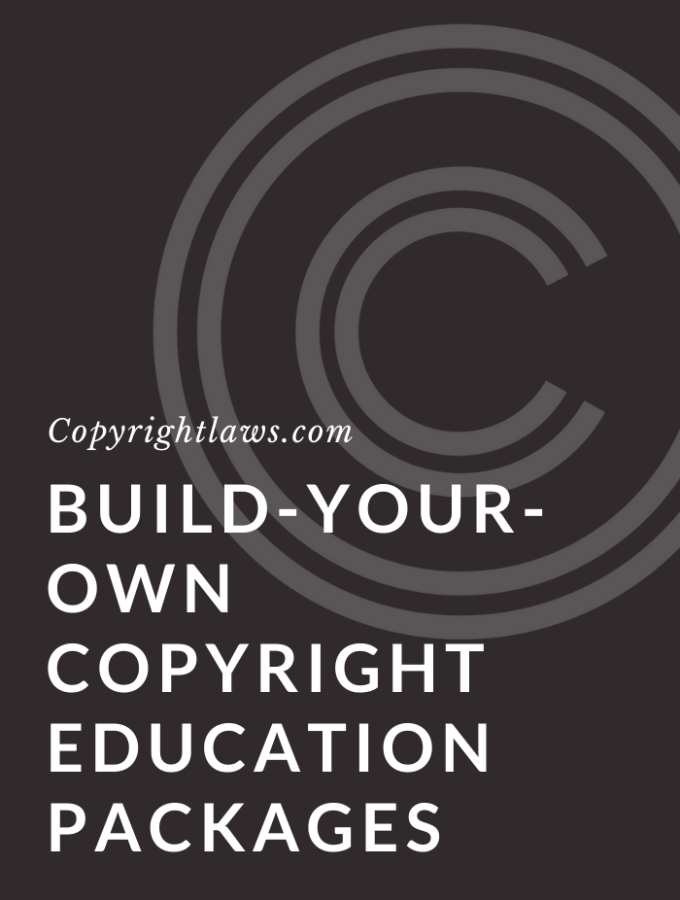
Copyrightlaws.com is excited to share Adam Weissman’s article, “Who Owns Your Social Media Content?”, with his tips for understanding the fine print about who owns your social media content. Mr. Weissman is a musician and performer and has a law practice in New York where he represents a wide range of clients in the arts, media and entertainment world.

If you own a smartphone or computer, no doubt you, like the majority of the U.S. population, regularly use social media and have created and amassed a huge catalogue of photos, videos or articles. You’ve probably posted them on Instagram, YouTube, Facebook and beyond. But as you were pushing all of this content out into the ether, did you ever stop to think about who actually owns those photos, videos or articles after they’ve been posted? The social media platforms just stood idly by as you did all the work to create and upload that content — surely, they have no claim to it?
Similar to how your mom calls every video game system a Nintendo, we often conflate social media platforms with the internet as a whole. All of these platforms are generally free to use and some of them, like Facebook and YouTube, have been around for over a decade. It’s easy to forget that these platforms are, at their core, profit-seeking businesses. What this means for you is that when you interact with them, you need to recognize that the platforms aren’t always taking your best interests into account. Take, for example, the competing copyright interests between you and the social media platforms you use.
31-DAY COPYRIGHT CHALLENGE 2020
This article is the 22nd of 31 articles we’re publishing in January 2020 as part of our 31-Day Copyright Challenge 2020. All of the articles are fully up-to-date, provide practical information and tips, and touch upon domestic and global copyright issues that affects all of us in our personal and work lives from sharing content to protect our creations and much more.
Primer on Copyright Law
Before we can get into the copyright dynamics between you and the social media platforms, let me give you a primer on copyright law. If you’re starting a business that creates anything of value, you really should have a basic understanding of copyright. When lawyers, courts and lots of money gets involved, copyright issues can get pretty convoluted, but at copyright law’s core are some fairly simple principles. Here’s how it operates.
- You create an original “work.” A work can be anything you write, draw, photograph or record. There’s no set definition of work; as new technology is created, providing new means to express ourselves, the concept of work continues to expand. Copyright does not cover ideas; your creation needs to be complete and out there in the universe for you to lay a claim to it. Copyright also does not cover new inventions (those would be covered by patents), or trade names and logos (trademarks).
Your copyright in your work exists the moment you bring that work into existence. It’s as simple as that. You don’t have to file anything; you don’t have to put that © anywhere. You are now the proud holder of a shiny, new legal right.
TIP: You may have heard of something called a “registered copyright.” The United States Copyright Office maintains a database that allows you to file for registration of your copyright. Registering offers a number of benefits if and when you ever need to enforce your copyright in court. Namely, it shows clear proof of ownership and potentially provides you with additional damages (read: you could get more money if you sue).
- With your copyright, you can use and reproduce the work yourself, lend it out to others to use (through something called a "license," which as I'll explain later, is the way most social media platforms gain the right to use your content), sue people who didn’t have your permission to use the work, or even sell your copyright completely, transferring all those previously-held rights to someone new.
That’s basically it. There are, of course, many qualifiers and caveats depending on your situation. One big caveat that I’d be remiss to ignore is that when other people are involved in the creation of your work, you’re not automatically the sole copyright holder. If you have partners or contributors to your work, they may have an ownership claim as well. If you’re creating something for an employer or someone who hired you, the default owner and copyright holder for that work is your employer. These issues become very context specific and complicated.
TIP: I always recommend putting together an agreement specifying copyright ownership prior to starting any collaborative project. This way you can determine who the copyright holder is ahead of time and avoid arguments later. Depending on the situation and amount of money involved, this can be accomplished through something as simple as a half-page agreement, or require a multi-page, heavily negotiated contract.
Licensing Your Content to Social Media Platforms
Social media platforms, including Facebook, Instagram, Twitter and Youtube, are only allowed to display your content online because of licenses that you, the copyright holder, grant them. Before we delve into what this means for you, allow me to explain the concept of licenses. A license is a legal right granted by a licensor giving a licensee permission to do some specified thing. If that’s too much jargon, look at it through this example: MI6 (licensor) grants James Bond (licensee) the ability to murder with impunity (a license to kill, naturally).
In order to get a license for a copyright-protected work the copyright holder (licensor) has to agree to give the license to the licensee. The two parties will also have to agree to specific terms of the license, such as:
- How much it will cost to get the license
- The period of time it will cover (the term)
- Whether the licensor will receive any payment from the licensee's commercial exploitation of the work (a royalty)
- Whether the licensor can license the work to additional licensees (exclusivity vs. non-exclusivity)
- And, whether the licensee can transfer or sub-license their own license to third parties
Like any other contract, there are countless clauses and provisions that can be negotiated and incorporated.
TIP: There are a few exceptions to this, known as compulsory licenses, where U.S. legislators have stepped in and made it mandatory for the copyright holder to grant a license on request. This exists for non-dramatic musical works, as well as a few other discrete areas. These compulsory licenses are not relevant to this blogpost.
How Social Media Licenses Your Content
How did these social media platforms acquire these licenses? I’m pretty sure that none of you ever sat in a boardroom across the table from Facebook or Twitter, negotiating the terms of the license you were going to grant them. Well, it turns out that the fine print you may have glossed over when you first signed up for an account, which can also be found online in the Terms of Use for all social media platforms, actually grants a specific license each time you upload your content. Let’s look at the language used by Facebook, Instagram, Twitter and YouTube, pulled from their respective Terms of Use as of 13 January 2020.
... a non-exclusive, transferable, sub-licensable, royalty-free, and worldwide license to host, use, distribute, modify, run, copy, publicly perform or display, translate, and create derivative works of your content (consistent with your privacy and application settings). This means, for example, that if you share a photo on Facebook, you give us permission to store, copy, and share it with others (again, consistent with your settings) such as service providers that support our service or other Facebook Products you use. This license will end when your content is deleted from our systems.
… a non-exclusive, royalty-free, transferable, sub-licensable, worldwide license to host, use, distribute, modify, run, copy, publicly perform or display, translate, and create derivative works of your content (consistent with your privacy and application settings). You can end this license anytime by deleting your content or account. However, content will continue to appear if you shared it with others and they have not deleted it.
… a worldwide, non-exclusive, royalty-free license (with the right to sublicense) to use, copy, reproduce, process, adapt, modify, publish, transmit, display and distribute such Content in any and all media or distribution methods now known or later developed (for clarity, these rights include, for example, curating, transforming, and translating). This license authorizes us to make your Content available to the rest of the world and to let others do the same. You agree that this license includes the right for Twitter to provide, promote, and improve the Services and to make Content submitted to or through the Services available to other companies, organizations or individuals for the syndication, broadcast, distribution, Retweet, promotion or publication of such Content on other media and services, subject to our terms and conditions for such Content use …
YouTube
… By providing Content to the Service, you grant to YouTube a worldwide, non-exclusive, royalty-free, sublicensable and transferable license to use that Content (including to reproduce, distribute, prepare derivative works, display and perform it) in connection with the Service and YouTube’s (and its successors' and Affiliates') business, including for the purpose of promoting and redistributing part or all of the Service …
So, Who Owns Your Social Media Content?
Simply put, you own the content you post to social media, but you've given each platform a license to use it as spelled out in their terms and conditions. These licenses are slightly different from each other, but all of them grant the social media platform the right to use your copyrighted work in whatever way they see fit.
Theoretically they could exploit it commercially and even sell or sublicense their license to a third party to use, and, as each one specifies that the license is “royalty free”, you would never receive any part of the profit. Now, this is by no means a reason to panic; the likelihood Facebook will start selling copies of your photos of your niece’s dance recital is very low. What this does mean, however, is that if one day one of your photos pops up on TV in a Facebook commercial, you can’t really do anything about it.
Copyright Tips for Posting Content on Social Media
Aside from simply avoiding social media platforms entirely, there’s no real way of getting around the licensing issue. While this alone might be keep some of the more strong-willed few off the platforms, the reality is that most of us will continue using them regardless. With that being said, I leave you with a few practical takeaways to keep in mind when posting on social media:
- Occasionally you should refrain from posting specific pieces of content on social media platforms. If at some point you intend to sell or otherwise commercially exploit your content, third parties looking to purchase it might not be so pleased when they learn that a social media platform already has the rights to it.
- In a similar vein, if you have a piece of content that’s simply too good to let someone else use, only post it on your own, privately-run website. Not only does this prevent the social media platforms from having the right to use your content, but it makes it more difficult and disincentivizes other social media users from copying it.
- Always read the fine print and keep up to date on each platform’s terms of service. As you saw, each social media platform has its own, unique take on licenses, so you should know exactly what you’re signing up for before you check that little box and open a new account. For example, where Facebook’s license typically terminates when you delete your account, Instagram and Twitter’s last forever. At some point, a new social media platform may arise, or an existing one may change their policies. That might include a term that has you grant them your ownership in copyright benefits altogether, rather than just a license — and that is something you should never agree to if you plan to make money from your content.
An earlier version of "Who Owns Your Social Media Content?" was posted in February 2017 on www.adamweissmanlaw.com.
For an in-depth understanding of the principles of U.S. and global copyright law, as well as practical Tools and strategies to address your copyright issues, see our online Copyright Leadership Certificate program.



